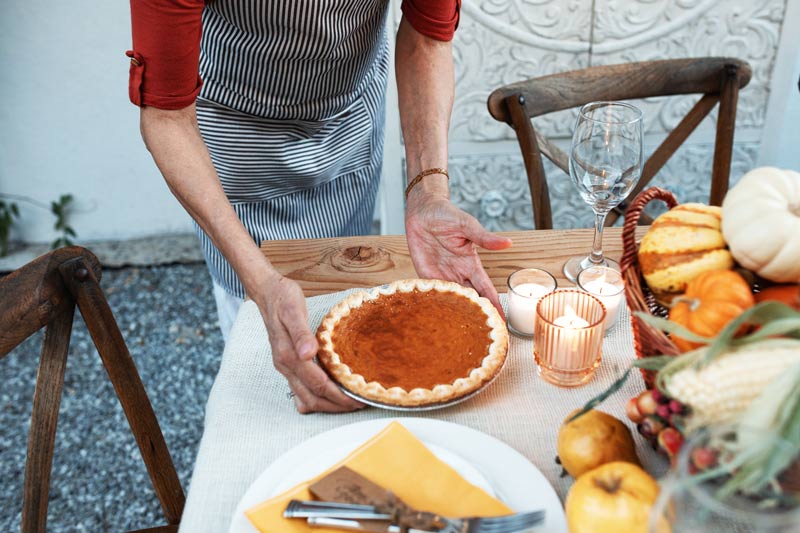Are you newly sober?
That is certainly something to be thankful for.
But with Thanksgiving on the horizon, you may be feeling a creeping sense of dread instead of gratitude. Family gatherings can be challenging—and this year offers a range of additional challenges.
Thanksgiving is just a few weeks after an election, which could lead to some fiery rhetoric over turkey and stuffing; the public health emergency is still with us, forcing everyone to make difficult decisions about how and with whom to celebrate; and even the Macy’s Thanksgiving Day Parade—which is one thing most everyone can enjoy together—has had to make substantial changes this year.
All the changes and uncertainty can make it easy to forget what Thanksgiving is all about—giving thanks for the good things in our life. Like your hard-won sobriety and the people who are supporting you on your recovery journey.
So how can you keep your focus on the gratitude rather than on the stressors and uncertainty that can, if unchecked, increase the risk of a relapse? We have some ideas.
Start by Making a List
When we think of someone making a holiday list, that list is generally for a jolly fellow in a warm red suit. But a Thanksgiving list can be a great reminder of where your focus should be during the stress of the holidays.
What should go on your list? Well, that’s up to you, but here are some things to consider including:
- Reasons your life is better because you are sober
- People (and pets) who have proven to be steadfast friends as your recovery journey has gotten underway
- Things you love about each member of your family (even when they drive you crazy)
- Positive aspects of your life like your job, your faith community, your recovery community, and other groups and organizations that provide stability and support for your recovery
- Quirky, personal things that bring you joy even if no one else is interested in them
Once you have your list, you may want to put a copy in your pocket so you can look at it anytime you feel the holiday stress starting to weigh on you. You may even decide to keep this list with you year-round.
As an aside, we will note here that this sort of list creation has a lot in common with journaling, which can be a very useful practice for people in recovery.
Now Make a Plan
One way to reduce the amount of stress you might be feeling about Thanksgiving is to make a plan for the various things that might pop up and knock you off balance. Some things to plan for might include:
- How you will turn down alcohol over dinner. Would it be a good idea to bring your own favorite nonalcoholic beverage to the gathering? How will you address questions about why you don’t want a glass of wine with dinner or a beer when the football games are on?
- How you will disengage from difficult conversations. Is there a quiet space you can escape to when the talk turns to politics? Have you decided how much you are willing to reveal about your substance use disorder and recovery if you are asked?
- How you will get home if you need to leave. It is possible that things will simply get overwhelming and you will need to make a gracious (or even not so gracious) exit. What’s your plan for getting home?
- How you will help protect everyone’s health over the holiday. Are you prepared to turn down invitations that might put others at risk? Are you confident that the gathering you plan to attend is safe?
Having a plan can keep you from having to make difficult decisions in the moment when your emotions, cravings, or anxiety are running high. In this way, your Thanksgiving plan-making is another thing for which you can be thankful.
We Are Grateful for the Opportunity to Help
If you are struggling with a substance use disorder, you may feel as though there is nothing in your life to be thankful for. At French Creek Recovery Center, we want to help you get sober and give you the resources to help you stay sober. Our team will personalize a treatment plan just for you, and we will make sure you have a strong foundation upon which to build your ongoing recovery. We are grateful for the opportunity to help people reclaim their lives. We would be delighted to help you find joy and gratitude in your life again.

